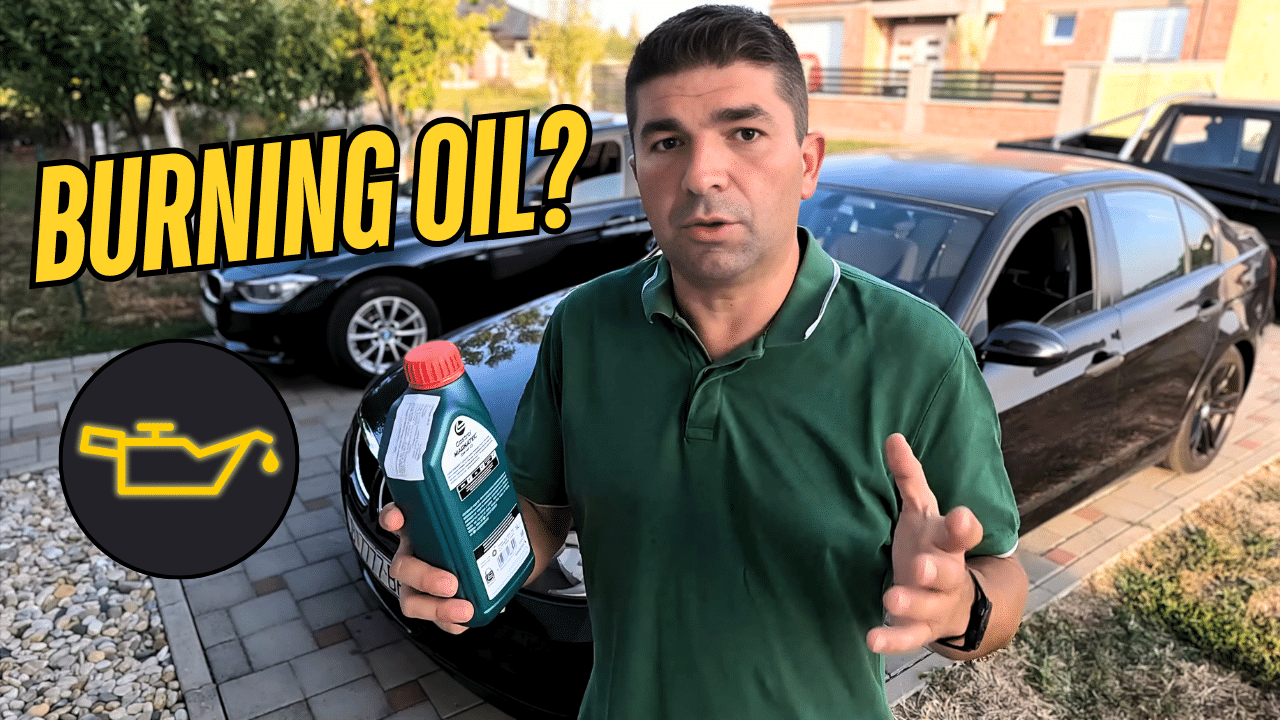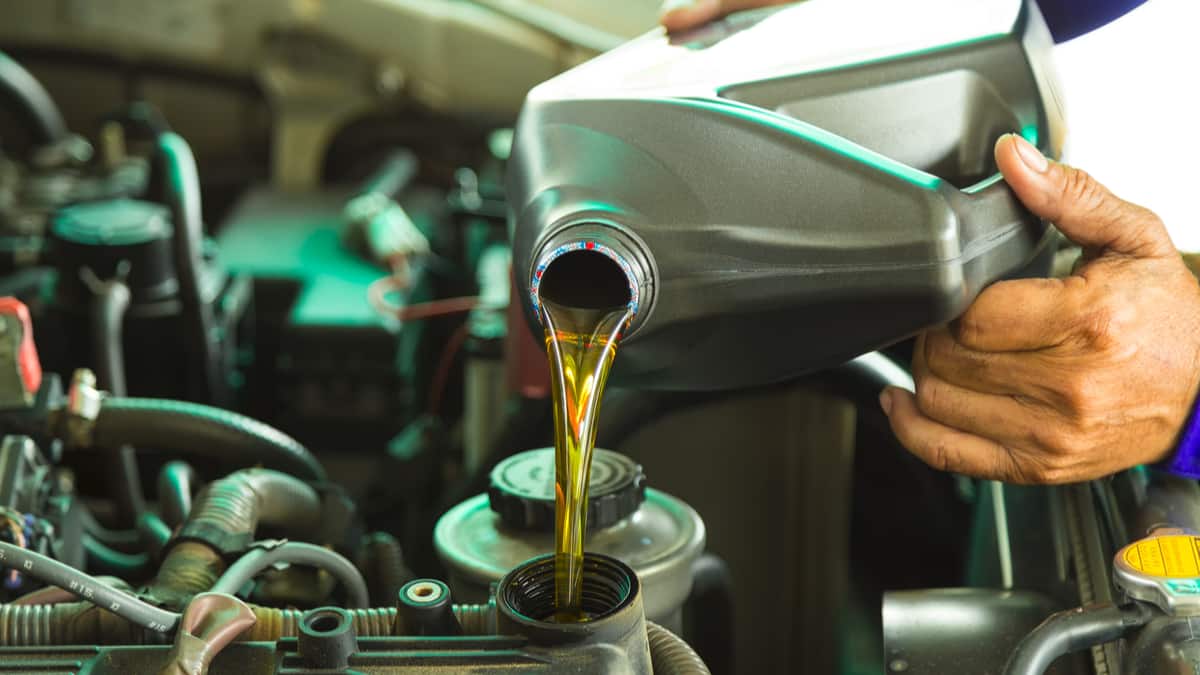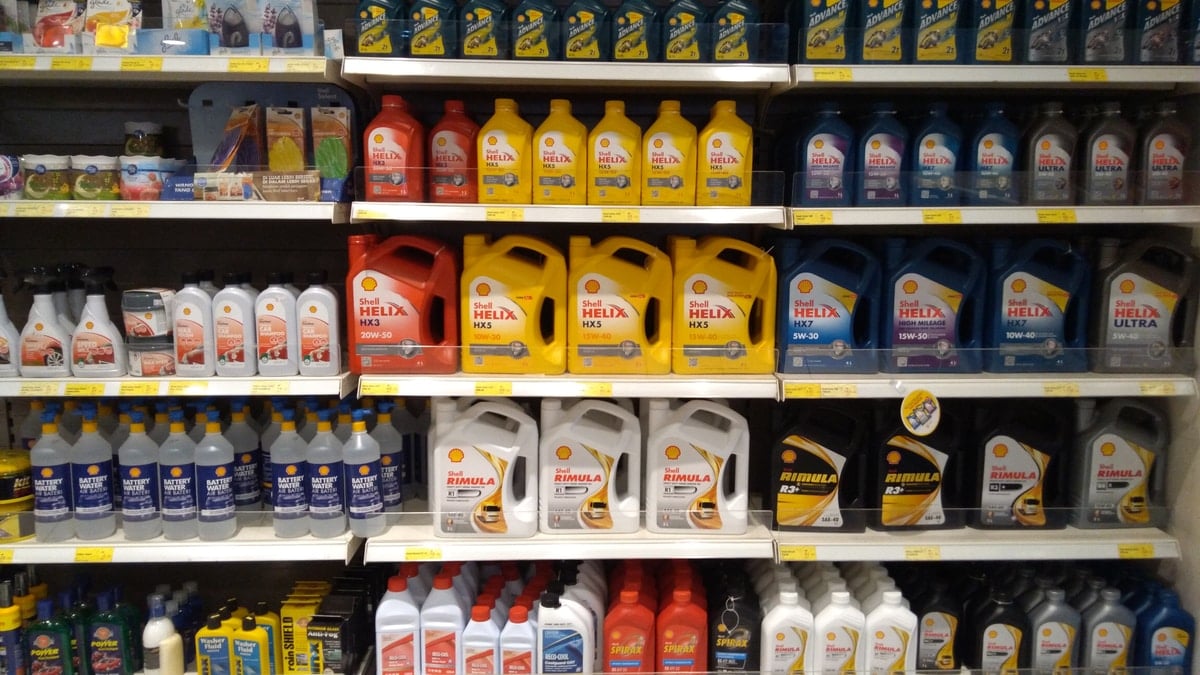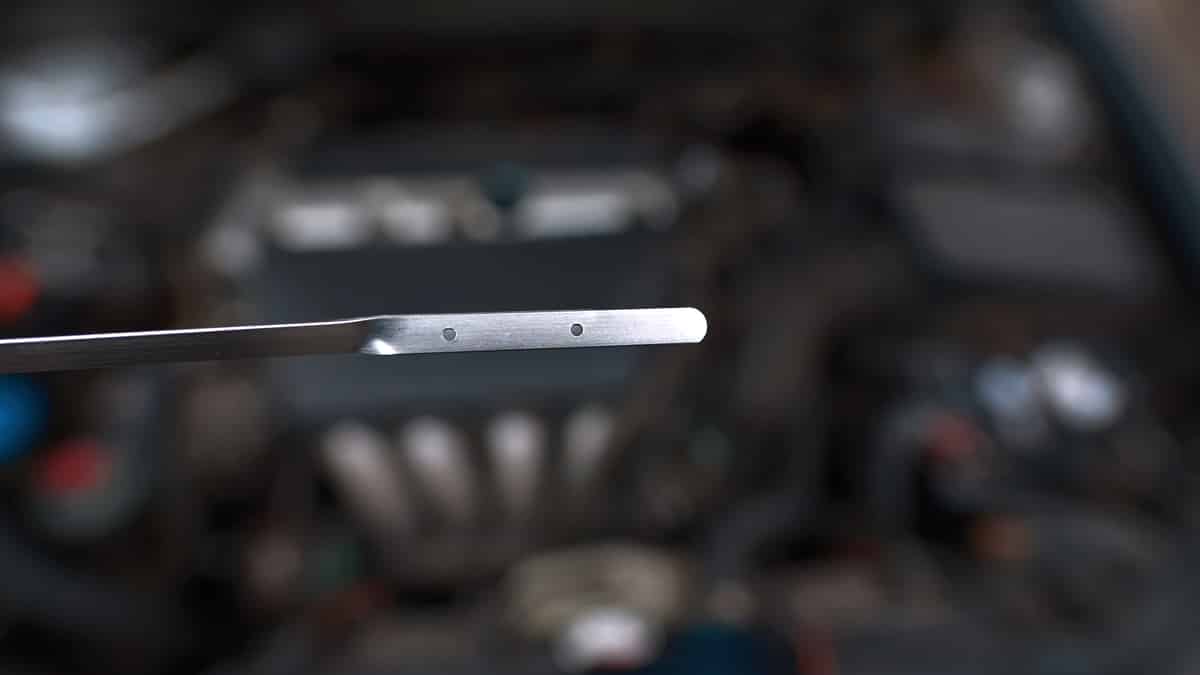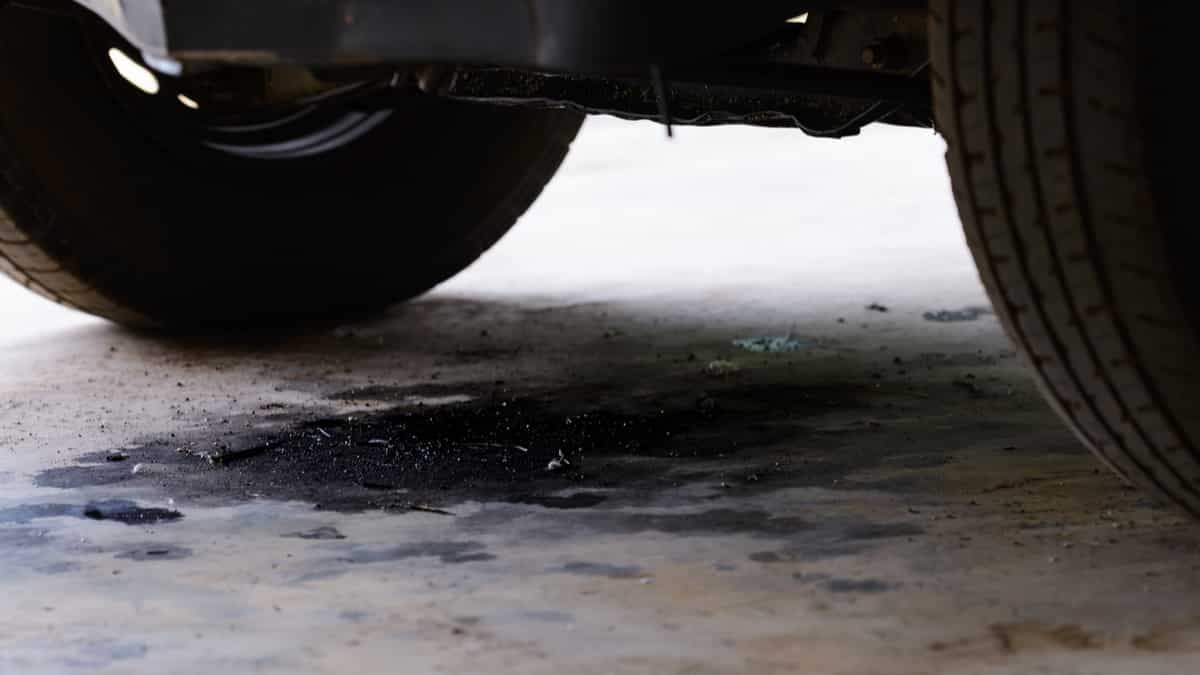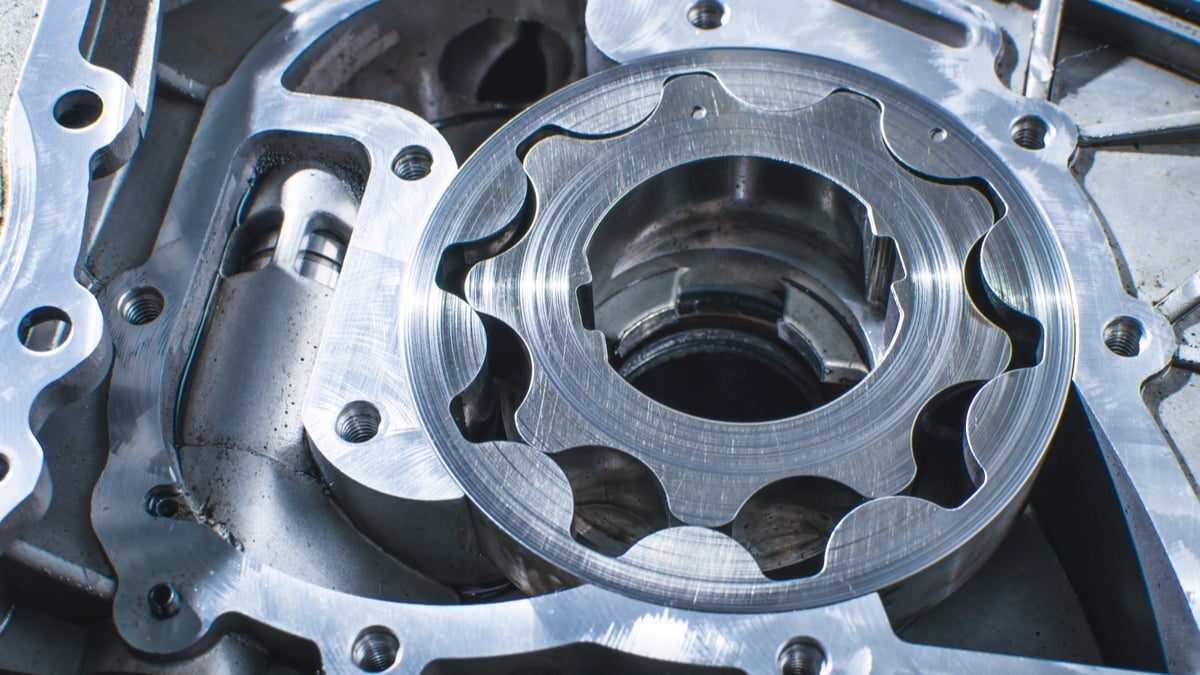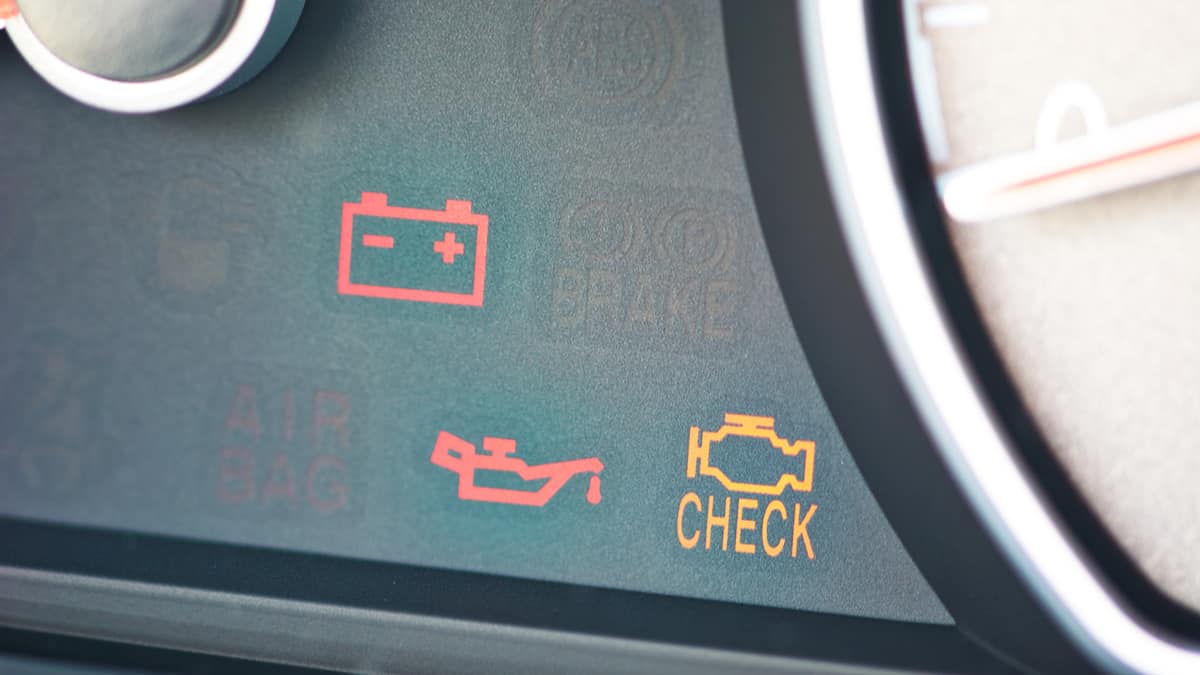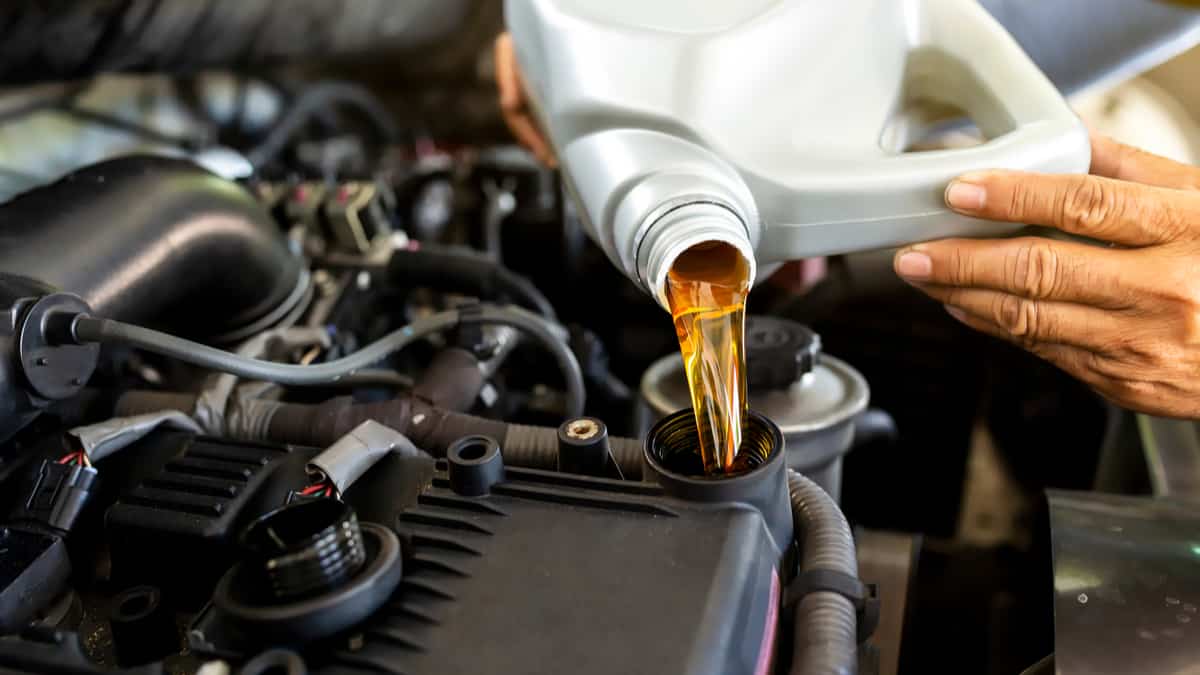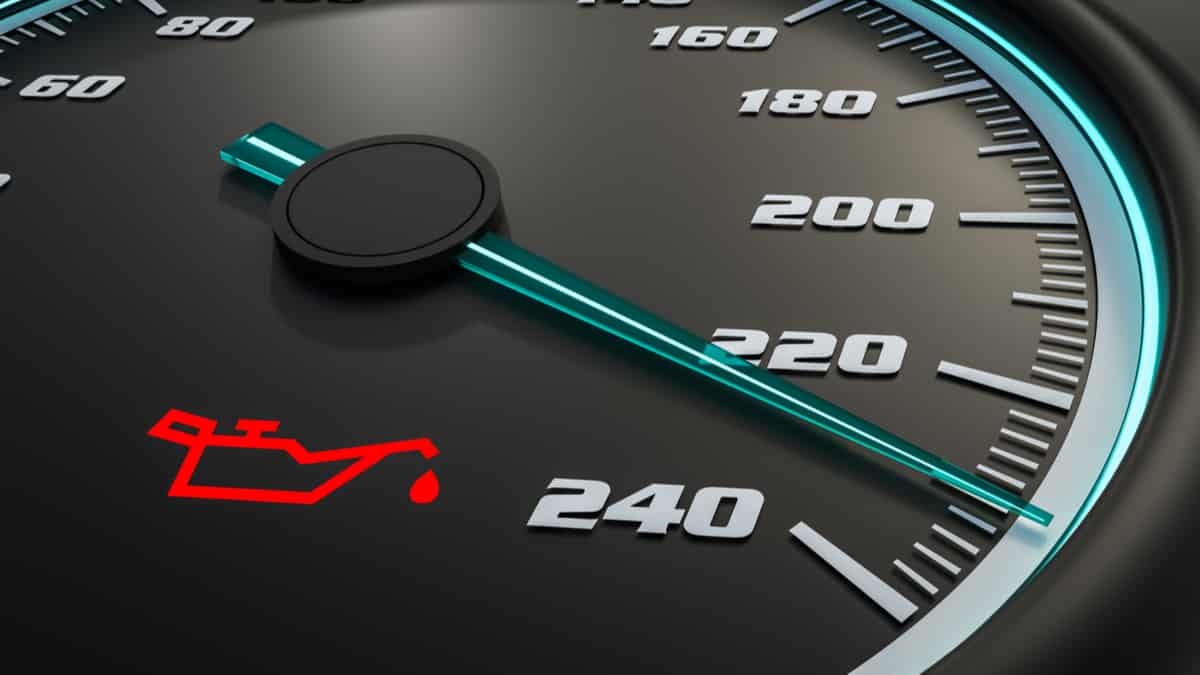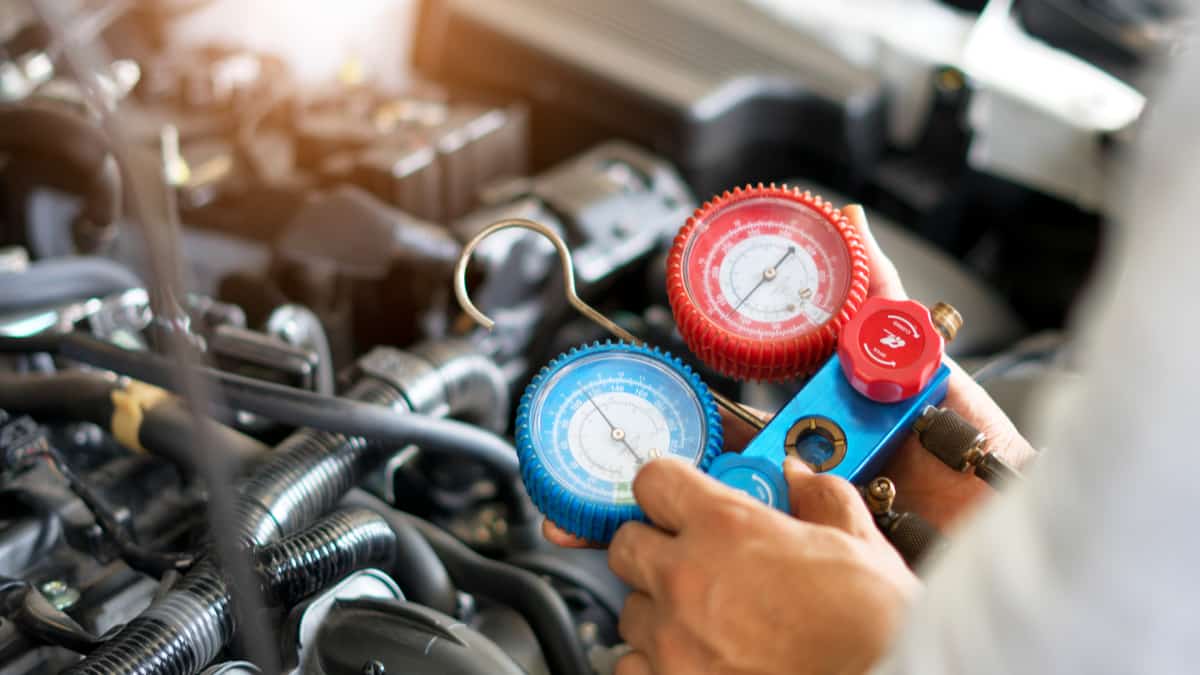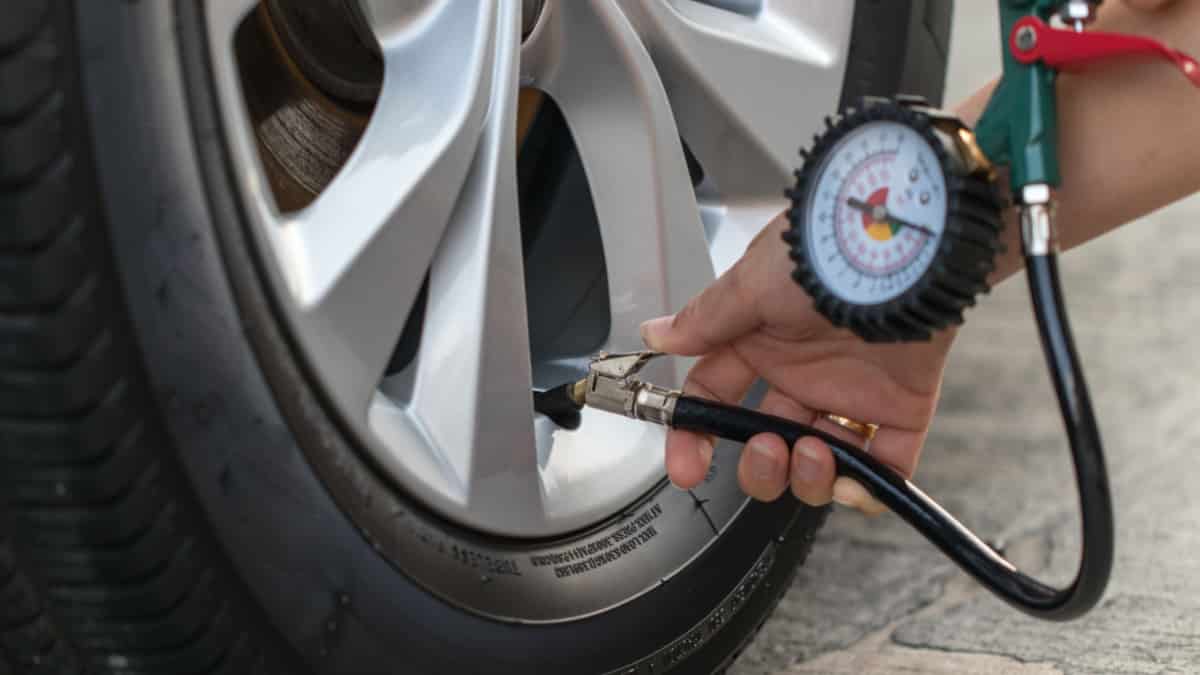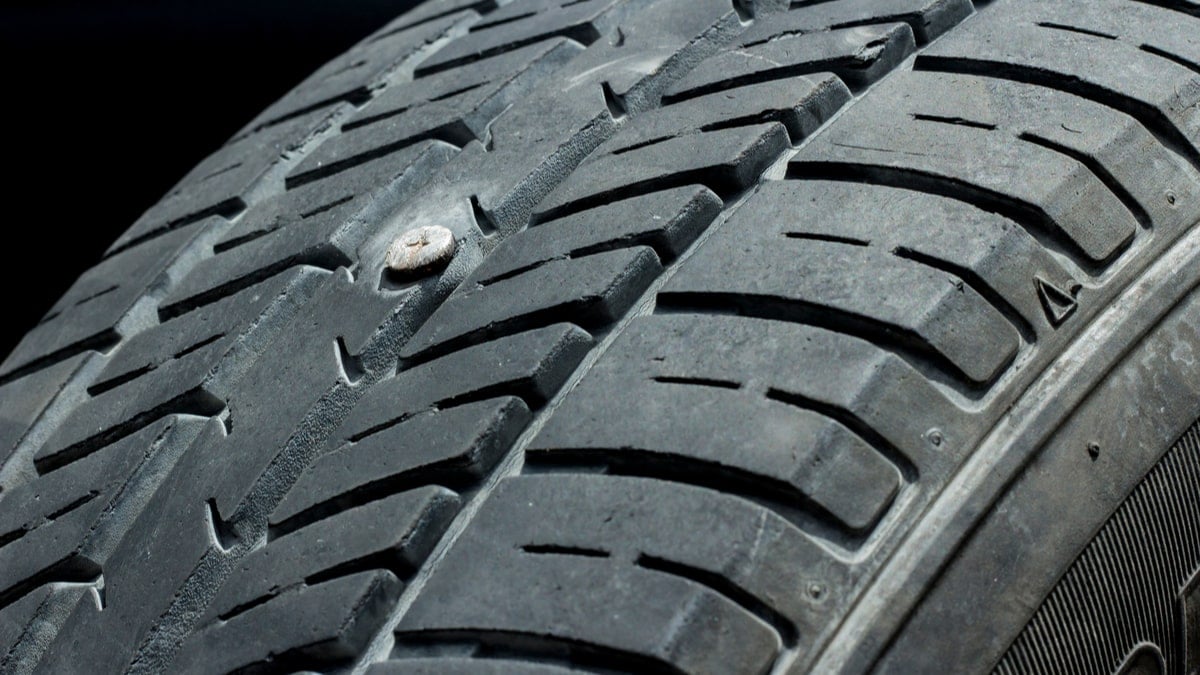Regular oil changes are imperative to keeping the car engine running as it should. Yet, what happens when the car uses oil in between these changes? Why is the car burning oil and what can be done to correct it?
In this guide, we cover the top reasons for cars to burn excessive oil and show you a few ways to fix it. We also dive into a discussion about stop-leak products and answer your most-asked oil questions.
What Causes a Car Engine To Burn Oil?
Car engines can burn more oil if there’s clogged crankcase ventilation, a bad PCV valve or you are using the wrong type of oil. It’s also caused by leaking seals or gaskets, bad piston rings or pistons, high oil pressure, bad valve seals or having an old and worn-out motor.
Let’s jump into the eight possibilities, so you can figure out what’s going on with your engine.
1. Clogged crankcase ventilation
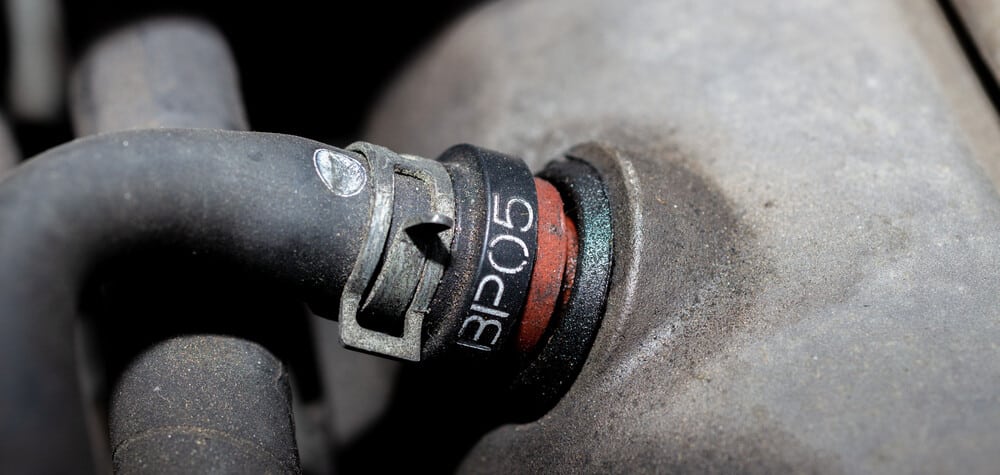
The crankcase holds the crankshaft and the oil for the engine. The pistons are responsible for generating the combustion gases, which cause a buildup of pressure during normal operation. These combustion gases are recirculated into the combustion chamber with the help of the PCV valve.
The engine burns these exhaust gases with the air-fuel mixture. However, when the ventilation is backed up in the crankcase, from clogged valve covers or a bad breather hose, the gases can’t escape. This problem leads to oil blowback, where oil gets into the combustion chamber instead of gasoline. The result is an engine that burns through oil at a rapid pace.
RELATED: 7 Symptoms of a Bad PCV Valve
2. Bad PCV Valve
The positive crankcase ventilation (PCV) system helps those exhaust gases get back into the combustion chamber for a second round of burning before exiting the vehicle. Yet, this part can also become clogged or can go bad.
When this happens, oil blowback occurs. As oil gets sucked into the combustion chamber, it burns. As a result, you may also notice blue smoke coming from the tailpipe of your vehicle.
3. Leaking Seals Or Gaskets
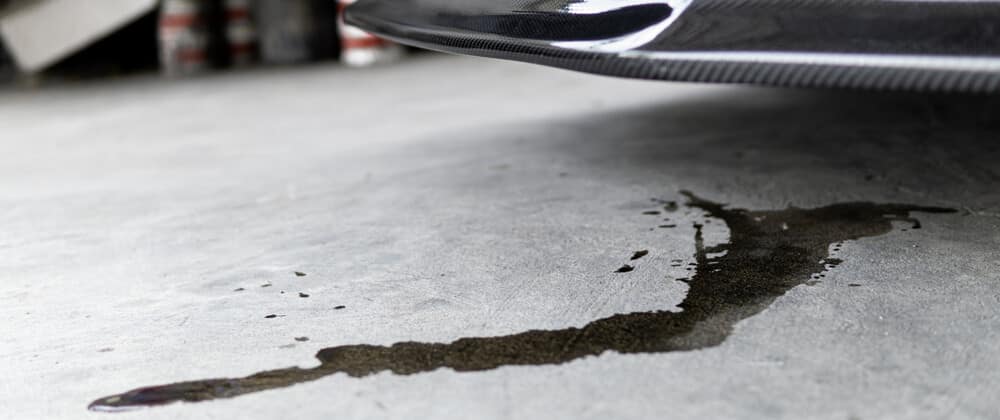
This is one of the more critical possibilities if your car engine is burning oil. As the internal seals or gaskets fail, an oil leak can occur that’s difficult to notice. Additionally, the oil could start leaking internally, which would cause blue smoke from the exhaust.
On the other hand, if the head gasket is to blame, you may be going through oil and not notice a leak. However, if you take a look in the coolant reservoir, you may find oil mixing there. This problem can lead to an overheating engine and is typically costly to repair.
4. Poor or Wrong Oil Quality
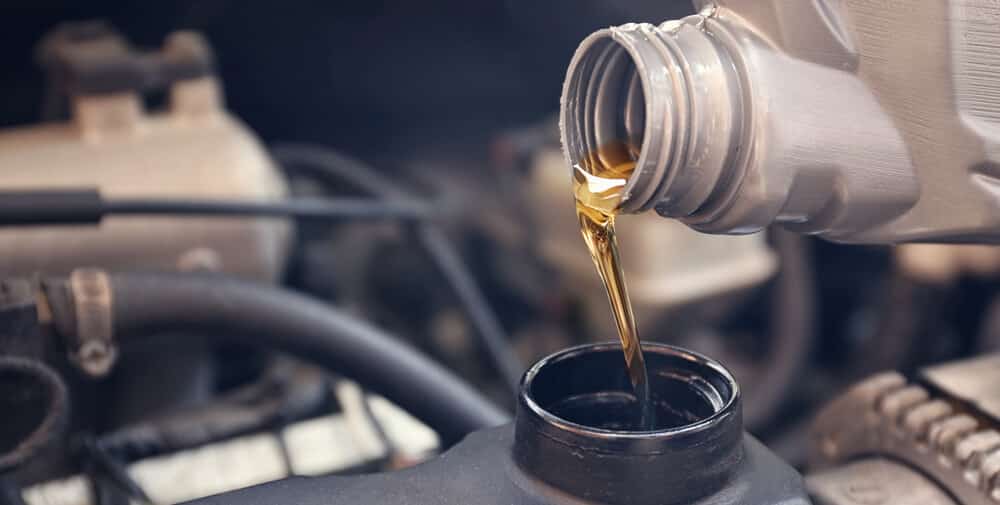
One of the easiest problems to remedy would be using the wrong oil type or poor quality. If the motor oil you use has bad heat resistance, it may not be providing the support your engine needs. Conventional oils are notorious for having an unstable molecule structure that easily burns off when heat is present. Not only does this problem lead to a lower oil level, but it also accelerates carbon buildup in the engine.
There’s also the chance that you’ve poured the wrong oil into the system. If you aren’t using the right viscosity, the oil may be too thin. If it’s too thin, oil can slip beyond the valve seals or worn-out rings more easily than thicker oil can. That’s why it’s essential to use the exact oil type recommended by the auto manufacturer. This information can be found in your owner’s manual
5. Bad Piston Rings Or Pistons
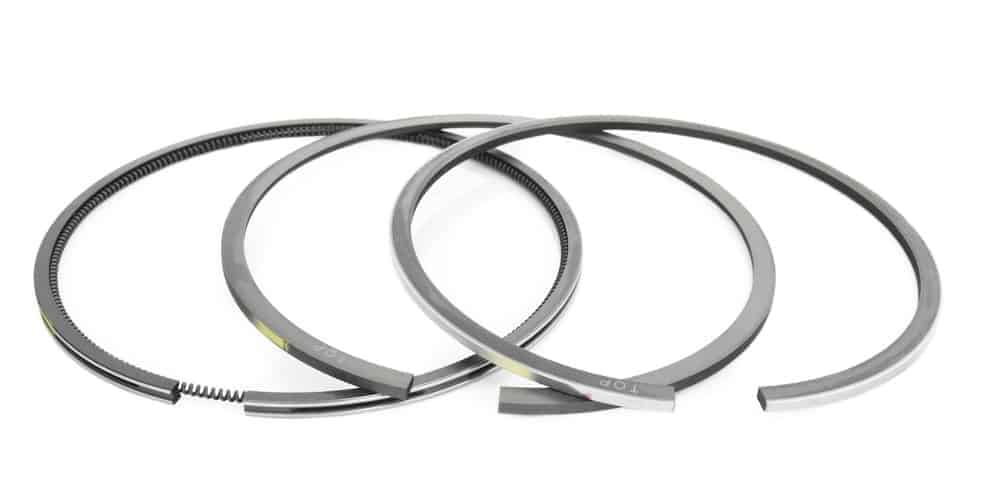
Another costly repair comes in when the piston rings or pistons are bad. The piston rings are responsible for creating a seal against the cylinder walls. With this seal, the engine has the compression it requires and combustion gases can’t escape.
When the piston rings wear out or the cylinder wall starts to deteriorate, oil can enter the combustion chamber. It burns and leaves you running low between oil changes. This issue also leads to increased exhaust smoke, poor acceleration and serious drivability concerns.
RELATED: 4 Symptoms of a Bad Piston Ring
6. High Oil Pressure
The engine needs to maintain a particular pressure level to ensure the engine gets the protection it needs. If there’s a clog somewhere, it can lead to increased oil pressure, which can turn into faster consumption.
For example, your car may have a clogged oil filter. Changing this filter will help the oil flow normally again. It also helps to maintain a better engine temperature.
7. Bad Valve Seals
The valve stem seals control lubrication to the valve guides and regulate oil consumption. However, when one of these seals goes bad, the opposite is true. You will notice a significant drop in oil levels.
You may notice blue smoke as oil gets into the combustion chamber. Even worse, without the right amount of oil, engine damage can occur.
8. Old, Worn-out Engine
If you are driving an older vehicle that’s seen some miles, there’s the possibility that the internals of the motor are simply worn out. Engines aren’t made to last forever.
Even with your most diligent efforts to keep the engine running right, it will eventually fail. As it gets worse, you will notice more oil consumption.
How to Fix Excessive Oil Consumption
If your car is burning oil more than it should, there are a few different methods for fixing it. Follow these steps.
1. Check Oil Condition & Type
The first and easiest step is to check the oil quality. Reference the type of oil you are using and match it up with what’s recommended by the manufacturer. If you aren’t using the right viscosity or type, it’s time to change the oil and filter. You may also choose to upgrade to a better brand than what you are currently using.
If you check the oil and it looks dirty and contaminated, go ahead and change it. From here, keep track of how often you are adding more oil to get a better idea of what’s going on.
2. Troubleshoot The Cause
The next step is a little harder, especially since you are dealing with internal engine components. It’s time to figure out which one of the components is bad, so it can be fixed. Some issues aren’t difficult to resolve, such as replacing a PCV valve. Other issues aren’t as easy to determine, such as if the engine has bad valve seals.
To get to the bottom of the problem, you may need to look at all of the symptoms the vehicle is experiencing. Putting this information together is like working with a puzzle.
3. Visit A Professional Mechanic
Many of these problems aren’t for the novice mechanic. If you are only accustomed to changing the oil and performing other basic tasks, it’s best for you to take the car to a mechanic.
Research reliable mechanics in your area or talk to loved ones to see who they trust. It’s better to pay a small diagnostic fee to find out what’s going on than to let the engine fail because of negligence.
Can I Use A Stop-Leak Additive To Stop My Car From Burning Oil?
If you’ve tried changing out the oil and troubleshooting the issues without any remedy, you may be thinking about pouring an additive in with the oil. This is a common solution and one that’s often worth trying, but there are some important warnings to consider. First, while there are many reliable brands out there that help lubricate seals and improve the oil quality, there are also some that aren’t worth your money. Make sure you perform adequate research first.
Secondly, if there’s a major mechanical failure occurring, there’s no sense in trying an additive. Continuing to neglect the engine is going to lead to a more expensive bill down the road. Instead, get the problem fixed and don’t worry about using an additive.
On the other hand, if you are planning to drive the wheels off of the car and don’t want to invest any more money, a bottle of special additives may give you a little more time with your car before it hits the junkyard.
Is it bad to drive a car that burns oil?
Yes, because there’s something wrong that needs to be repaired. Furthermore, if you don’t keep the engine topped off at all times and the oil level drops too low, it could lead to internal damage. In the end, you may end up with an engine rebuild or replacement when you should have just resolved the cause.
How much does it cost to fix a car burning oil?
It depends on what’s wrong. If you need to change the oil or replace the PCV valve, you may not spend more than $100. On the other hand, some repairs can be costly. For example, replacing valve seals can cost more than $2,000 because of how much labor is involved.
How long will an engine last burning oil?
There’s no way of knowing. Some cars are known for burning some oil and never fail as long as the system is topped off. In other cases, the motor could fail prematurely with the fault unrepaired. That’s why it’s important to diagnose and repair the issue immediately.
Does burning oil mean I need a new engine?
Not always. It’s possible that you aren’t using the right oil or there’s a minor problem, such as a clogged PCV valve. These are both easy fixes that will keep the engine from burning oil. However, there are more costly possibilities, such as bad valve seals or a blown head gasket. Unless the internals of the engine are damaged, you shouldn’t need to replace the motor.
Will high-mileage oil stop burning oil?
If your engine has a lot of miles on it, switching oil types may be useful. High-mileage oil provides more protection for an older engine, helping it to burn less between changes. You also need to make sure that the viscosity is what’s recommended by the manufacturer, which can be found in the owner’s manual.
If your car is burning oil, you want to take the situation seriously. It’s important for the engine to retain just the right amount of oil for proper lubrication and function. The engine starts to make noise without the right amount of oil and the internals can become permanently damaged.
If you aren’t sure how to figure out what’s wrong, visit a trusted mechanic in your area. There’s a chance that the problem can be resolved with a minor repair. Hopefully, with a quick repair, you will stop pouring so much oil into your vehicle.
Categories: Engine Oil, Troubleshooting
